Related Research Articles

The Nobel Prize in Physiology or Medicine is awarded yearly by the Nobel Assembly at the Karolinska Institute for outstanding discoveries in physiology or medicine. The Nobel Prize is not a single prize, but five separate prizes that, according to Alfred Nobel's 1895 will, are awarded "to those who, during the preceding year, have conferred the greatest benefit to humankind". Nobel Prizes are awarded in the fields of Physics, Chemistry, Physiology or Medicine, Literature and Peace.

Imperial College London is a public research university in London, England. Its history began with Prince Albert, consort of Queen Victoria, who developed his vision for a cultural area that included the Royal Albert Hall, the Victoria and Albert Museum, the Natural History Museum and several royal colleges. In 1907, Imperial College London was established by royal charter, unifying the Royal College of Science, the Royal School of Mines and the City and Guilds of London Institute. In 1988, the Imperial College School of Medicine was formed by merging with St Mary's Hospital Medical School. In 2004, Queen Elizabeth II opened the Imperial College Business School.
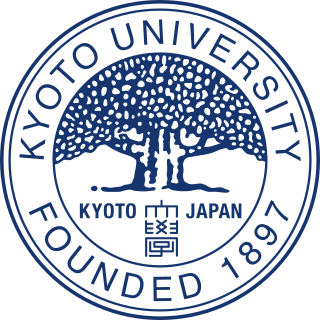
Kyoto University, or KyotoU, is a national research university located in Kyoto, Japan. Founded in 1897, it is one of the former Imperial Universities and the second oldest university in Japan.

The Karolinska Institute is a research-led medical university in Solna within the Stockholm urban area of Sweden and one of the foremost medical research institutes globally. The Nobel Assembly at the Karolinska Institute awards the Nobel Prize in Physiology or Medicine. The assembly consists of fifty professors from various medical disciplines at the university. The current vice-chancellor of Karolinska Institute is Annika Östman Wernerson, who took office in March 2023.

The Medical Research Council (MRC) is responsible for co-coordinating and funding medical research in the United Kingdom. It is part of United Kingdom Research and Innovation (UKRI), which came into operation 1 April 2018, and brings together the UK's seven research councils, Innovate UK and Research England. UK Research and Innovation is answerable to, although politically independent from, the Department for Business, Energy and Industrial Strategy.
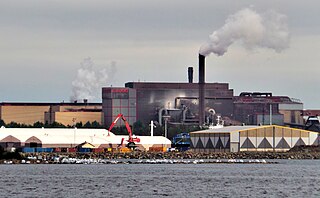
Environmental chemistry is the scientific study of the chemical and biochemical phenomena that occur in natural places. It should not be confused with green chemistry, which seeks to reduce potential pollution at its source. It can be defined as the study of the sources, reactions, transport, effects, and fates of chemical species in the air, soil, and water environments; and the effect of human activity and biological activity on these. Environmental chemistry is an interdisciplinary science that includes atmospheric, aquatic and soil chemistry, as well as heavily relying on analytical chemistry and being related to environmental and other areas of science.
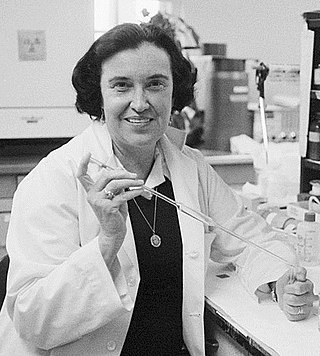
Rosalyn Sussman Yalow was an American medical physicist, and a co-winner of the 1977 Nobel Prize in Physiology or Medicine for development of the radioimmunoassay technique. She was the second woman, and the first American-born woman, to be awarded the Nobel Prize in Physiology or Medicine.
Imperial College School of Medicine (ICSM) is the undergraduate medical school of Imperial College London in England and one of the United Hospitals. It is part of the college's Faculty of Medicine and was formed by the merger of several historic medical schools. It has core campuses at South Kensington, St Mary's, Charing Cross, Hammersmith and Chelsea and Westminster. The school ranked 3rd in the world for medicine in the 2022 Times Higher Education World University Rankings.
CSIRO Publishing is an Australian-based science and technology publisher. It publishes books, journals and magazines across a range of scientific disciplines, including agriculture, chemistry, plant and animal sciences, natural history and environmental management. It also produces interactive learning modules for primary school students and provides writing workshops for researchers.
In mainstream scientific usage, hair analysis is the chemical analysis of a hair sample. The use of hair analysis in alternative medicine as a method of investigation to assist alternative diagnosis is controversial and its use in this manner has been opposed repeatedly by the AMA because of its unproven status and its potential for healthcare fraud.
World Scientific Publishing is an academic publisher of scientific, technical, and medical books and journals headquartered in Singapore. The company was founded in 1981. It publishes about 600 books annually, along with 135 journals in various fields. In 1995, World Scientific co-founded the London-based Imperial College Press together with the Imperial College of Science, Technology and Medicine.
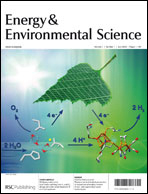
Energy & Environmental Science is a monthly peer-reviewed scientific journal publishing original (primary) research and review articles. The journal covers work of an interdisciplinary nature in the biochemical and biophysical sciences and chemical and mechanical engineering disciplines. It covers energy area. Energy & Environmental Science is published by the Royal Society of Chemistry.
Applied Spectroscopy is a peer-reviewed scientific journal published monthly by the Society for Applied Spectroscopy, and it is also the official journal for this society. The editor-in-chief is Sergei G. Kazarian. The journal covers applications of spectroscopy in analytical chemistry, materials science, biotechnology, and chemical characterization.
Endeavour is a quarterly peer-reviewed academic journal published by Elsevier. It began as a scientific review publication published by Imperial Chemical Industries in 1942, and since has evolved into a scholarly journal covering the fields of history and philosophy of science, technology, and medicine. Its editor-in-chief is Don Opitz.
Science Publishing Group (SPG) is an open-access publisher of academic journals and books established in 2012. It has an address in New York City but is actually based in Pakistan. The company has been criticized for predatory publishing practices. As of 2019, it publishes 430 journals in various fields.
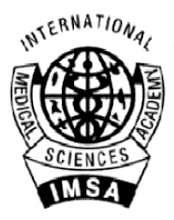
The International Medical Sciences Academy (IMSA) is a global organization founded in 1981 with the aim of improving universal health. It is registered as a professional body under the Societies Registration Act of India and is based in New Delhi, India. It publishes the Journal of the International Medical Sciences Academy and is an associate member of the Council for International Organizations of Medical Sciences.
The Abdul Latif Jameel Institute for Disease and Emergency Analytics is a research institute at Imperial College London in the fields of epidemiology, mathematical modelling of infectious diseases and emergencies, environmental health, and health economics. Co-founded in 2019 by Imperial College London and Community Jameel, the Jameel Institute is housed in the School of Public Health, within the college's Faculty of Medicine. The mission of the Jameel Institute is "to combat threats from disease worldwide".